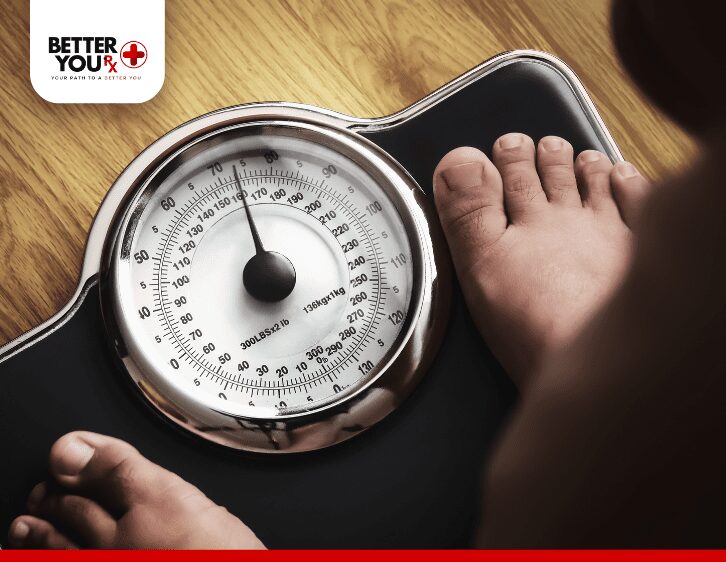Obesity is a serious health condition characterized by an excess of body fat that can lead to various health problems, including heart disease, diabetes, and certain cancers. Early recognition of obesity is essential for effective management and prevention. This article will explore how to identify the common signs of obesity, providing valuable insights into physical, behavioral, and health-related indicators.
Understanding Obesity
Obesity is generally measured using the Body Mass Index (BMI), which is calculated with the formula:

A BMI of 30 or higher indicates obesity. While BMI is a useful tool, it doesn’t account for muscle mass, bone density, or fat distribution. Other measurements like waist circumference and body fat percentage are also important for a more accurate assessment.
Obesity can also be categorized based on fat distribution. General obesity refers to an even distribution of body fat, while abdominal obesity involves fat accumulation around the abdomen. Abdominal obesity is linked to higher risks of metabolic syndrome and cardiovascular diseases. This can be evaluated using waist-to-hip ratio measurements or advanced imaging techniques like MRI and CT scans.
Key Indicators of Obesity

Unexplained Weight Gain: One of the primary signs of obesity is a noticeable and unexplained increase in weight. Regularly tracking your weight and observing both short-term and long-term changes can help identify significant gains that may indicate obesity.
Increased Body Fat: Body fat percentage is a crucial indicator of obesity. It provides a clearer picture of body fat than BMI alone. Measuring body fat can be done using tools like body fat scales or skinfold calipers, which help assess fat distribution and monitor changes over time.
Changes in Body Shape: Shifts in body shape can signal obesity. For example, an apple-shaped body, with fat concentrated around the abdomen, is associated with higher health risks compared to a pear-shaped body, where fat is more concentrated in the hips and thighs. Observing these changes can help in early detection.
Skin Changes: Rapid weight gain often leads to skin changes such as stretch marks or acanthosis nigricans. Stretch marks appear as streaks on the skin, while acanthosis nigricans is characterized by dark, velvety patches on the neck, armpits, or groin. These skin conditions can be indicators of obesity-related issues.
Behavioral and Psychological Indicators

Reduced Physical Activity: A noticeable decrease in physical activity levels, often due to reduced energy or motivation, can be both a consequence and cause of obesity. Tracking changes in activity levels and exercise habits can help identify potential obesity issues.
Changes in Eating Habits: Overeating and increased consumption of high-calorie foods are significant behavioral signs of obesity. Keeping a food diary to monitor dietary intake can help identify patterns of overeating and guide healthier eating habits.
Emotional Eating: Using food as a coping mechanism for stress or emotional challenges can contribute to weight gain. Addressing emotional eating through counseling or therapy may help manage this aspect of obesity.
Mental Health Impacts: Obesity often affects mental health, leading to low self-esteem, depression, and anxiety. Negative body image and societal stigma can further exacerbate these issues. Consulting with mental health professionals can greatly help in addressing and managing psychological effects.
Social Withdrawal: Obesity can lead to social withdrawal due to embarrassment or fear of judgment. This can affect social interactions and contribute to feelings of isolation. Engaging in social activities and seeking support from friends and family can help counteract these effects.
Health Symptoms Linked to Obesity
Respiratory Issues: Obesity can lead to shortness of breath and reduced lung capacity. Monitoring changes in breathing patterns and endurance can help identify respiratory issues related to obesity.
Sleep Apnea: Characterized by loud snoring and excessive daytime sleepiness, sleep apnea is commonly associated with obesity. Addressing this condition with medical intervention can improve sleep quality.
Joint Pain: Excess weight can put added stress on weight-bearing joints, leading to pain, especially in the knees and lower back. This added pressure can worsen conditions like osteoarthritis. Physical therapy and weight management strategies can help alleviate joint pain.
Cardiovascular Symptoms: Obesity increases the risk of cardiovascular issues, such as elevated blood pressure and a higher resting heart rate. Regular monitoring of blood pressure and heart rate is essential for managing these risks.
Metabolic Symptoms: High blood sugar levels and high cholesterol are common in obesity. Elevated fasting blood glucose levels and high cholesterol levels are associated with a greater risk of diabetes and cardiovascular disease. Regular blood tests and lifestyle modifications are necessary to manage these conditions.
Diagnostic Approaches and Professional Support
Routine Health Screenings: Regular health check-ups, including physical examinations and blood tests, are essential for early detection of obesity and related health problems. These screenings help identify changes in weight, body fat, and overall health status.
Advanced Diagnostic Tools: Imaging techniques like MRI and CT scans provide detailed insights into fat distribution and its impact on internal organs. Body composition analysis methods, such as DEXA or BIA, offer accurate measurements of body fat and lean mass.
Benefits of Early Detection
Health Benefits: Identifying obesity early allows for timely intervention, which can significantly reduce the risk of developing chronic diseases. Early action helps prevent or delay the onset of conditions such as cardiovascular disease, diabetes, and certain cancers.
Personalized Management: Early detection enables the development of personalized management strategies. Tailoring diet, exercise, and treatment plans to individual needs ensures more effective and sustainable weight management.
Actionable Steps for Managing Obesity

Healthy Diet: Maintain a healthy diet by focusing on fruits, vegetables, lean proteins, and whole grains. Try to make vegetables and fruits cover half of your plate during each meal. Choosing lean proteins and whole grains helps regulate blood sugar levels and manage weight.
Regular Exercise: Engage in at least 150 minutes of moderate-intensity aerobic exercise each week. Engage in strength training exercises at least twice a week to enhance muscle growth and increase metabolism.
Consult Healthcare Professionals: Seek advice from dietitians, endocrinologists, or obesity specialists for personalized guidance. Medications like Wegovy and Ozempic from Better You Rx can be effective in managing obesity when combined with lifestyle changes. Wegovy (Semaglutide) helps reduce appetite and calorie intake, while Ozempic (Semaglutide) controls appetite and supports weight management. Learn more about Wegovy and Ozempic from Better You Rx here.
Consider Surgical Options: For severe obesity or when other methods are ineffective, bariatric surgery might be considered. Gastric bypass surgery and gastric sleeve surgery are options that can significantly aid in weight loss and management.
Build a Support System: Engage with family and friends to provide motivation and encouragement. Connect with support groups or online communities for extra assistance and encouragement. Address psychological factors with therapy or counseling to improve self-esteem and develop healthier coping mechanisms.
Conclusion
Recognizing the common signs of obesity early on is crucial for effective prevention and management. By monitoring physical, behavioral, and health-related indicators, individuals can take proactive steps to address obesity and reduce the risk of associated health complications. For those struggling with obesity, exploring medical options like Wegovy and Ozempic from Better You Rx can offer significant benefits. These medications, combined with lifestyle changes and professional support, can provide a comprehensive approach to managing obesity.
Taking early action and seeking appropriate guidance can make a significant difference in achieving and maintaining a healthy weight. Staying informed and proactive helps improve overall health and quality of life.



